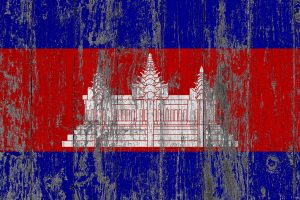As sure as night follows day, Cambodia’s ruling Cambodian People’s Party (CPP) has sued a senior member of the opposition Candlelight Party (CLP) for claiming that this month’s commune elections were unfair.
According to a complaint filed by a government lawyer on Tuesday, the CPP administration is suing Son Chhay, the party’s vice president, for $1 million in compensation for comments he made in an online interview, the local media outlet Cambodianess reported Tuesday.
The June 5 commune and sangkat election, an important bellwether for next year’s national election, saw Prime Minister Hun Sen’s hegemonic party win 9,338 out of the 11,622 commune council seats up for election, while the CLP, the latest incarnation of the opposition party founded by the opposition leader Sam Rainsy in 1995, won 2,119 council seats.
During his interview with The Cambodia Daily on June 7, two days after election day, Son Chhay pointed to the host of disadvantages facing the CLP and other opposition parties, from the obvious pro-CPP bias of the country’s National Election Committee to the widespread intimidatory vote-buying that foamed the runway for the CPP. As a result, Son Chhay said that the election could not be considered free, fair, or democratic, and that it did not reflect the will of the Cambodian people.
In the legal complaint, government lawyer Ky Tech claimed that Son Chhay’s comments “spread false information with malicious intent and were slanderous, which was seriously damaging to the reputation of the Cambodian People’s Party, which won the election.” Thach Setha, the CLP’s president, said that Son Chhay, who holds both Cambodian and Australian citizenship, left the country for Australia before the lawsuit was filed.
Most immediately, the lawsuit reflects the government’s abuse of the legal system for political ends, a phenomenon that has increased over the past two decades, a development that roughly tracks the decline in the use of violence as a tool of Cambodian political life. It also suggests that while the participation of the CLP in the commune election might suggest a loosening of the CPP’s grip on power, the ruling party will continue to guard the political space against the emergence of any meaningful democratic alternative.
Over the past five years, the CPP has waged a fierce crackdown on the political opposition and the country’s independent media and civil society. This involved the court-ordered banning of the Cambodia National Rescue Party (CNRP), then the country’s largest and most capable opposition party, which scored significant gains at national elections in 2013. It also involved the subsequent arrest of the party’s then president, Kem Sokha on charges of treason and the scattering of most of its senior officials into exile.
That this crackdown remains operative, despite the government’s apparent tolerance for a more open form of electoral democracy, was conclusively proven on Tuesday, when a Phnom Penh court sentenced 31 opposition activists to lengthy prison terms for incitement and plotting against the CPP government. All of them were members or close associates of the CNRP, including Theary Seng, a Cambodian-American lawyer who has long been a critic of the CPP.
With an opposition party once again able to operate legally, it is possible that Cambodia will revert to a less openly authoritarian state. But the lawsuit is an example that the boundaries of the politically possible remain constricted, and will be vigilantly policed by the ruling party.

































